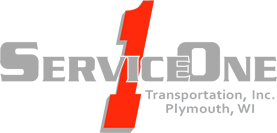Truck driving is a demanding profession that requires dedication, skill, and resilience. Whether you’re a seasoned professional or just getting started in the industry, personal development is key to not only staying successful but also maintaining job satisfaction. Setting and achieving goals can improve your career trajectory, boost motivation, and lead to a better work-life balance. This guide will help truck drivers understand the importance of setting personal development goals and provide practical steps for achieving them.
Why Personal Development Matters for Truck Drivers
Personal development is essential in any career, but it holds particular significance for truck drivers. The trucking industry can sometimes feel isolating, with long hours spent on the road and limited interaction with others. However, when you focus on self-improvement, you can increase job satisfaction, elevate your skill set, and create new opportunities for growth.
Moreover, as the trucking industry evolves, it’s important to stay up to date on new technologies, regulations, and safety standards. By committing to personal development, truck drivers can ensure they remain competitive, adaptable, and knowledgeable in their roles.
The Power of Goal Setting
Goal setting is a powerful tool for personal development. It helps you stay focused, motivated, and organized. When you set clear, actionable goals, you’re more likely to follow through and achieve them. Goals can range from short-term objectives to long-term career aspirations, but the key is to make them specific, measurable, achievable, relevant, and time-bound (SMART).
The SMART Goal Framework
Let’s break down the SMART goal framework to see how you can apply it to your personal development as a truck driver:
- Specific: Clearly define what you want to achieve. Instead of saying “improve my driving skills,” say “complete a defensive driving course.”
- Measurable: Set criteria for tracking your progress. For example, “drive 50,000 miles without a safety incident.”
- Achievable: Set realistic goals based on your current skill level and resources. Make sure the goal is challenging but attainable.
- Relevant: Ensure that your goal aligns with your broader career aspirations. For example, “obtain a certification to qualify for more lucrative routes.”
- Time-bound: Set a deadline for achieving your goal. This helps you stay accountable and ensures that you’re making consistent progress.
By applying the SMART framework, you can develop clear, actionable goals that guide your personal and professional growth.
Key Areas of Focus for Personal Development
As a truck driver, there are several areas where you can focus your personal development efforts. These include improving your driving skills, building your physical health, enhancing your communication abilities, and advancing your knowledge of the trucking industry. Let’s explore these areas in more detail.
Improving Driving Skills
Driving skills are at the heart of your profession. Whether you’ve been driving for years or are new to the industry, there’s always room for improvement. By improving your driving skills, you not only increase your safety on the road but also boost your efficiency and reduce wear and tear on your vehicle.
Actionable Steps:
- Take Advanced Driving Courses: Even if you’ve been driving for years, advanced driving courses can provide you with new techniques to handle challenging road conditions.
- Track Your Driving Performance: Keep a record of your trips, including speed, fuel efficiency, and delivery times, to identify areas where you can improve.
- Practice Defensive Driving: Practice defensive driving techniques to help prevent accidents, reduce risk, and avoid costly mistakes.
Physical Health and Fitness
Truck driving is a sedentary job, which can lead to health issues such as weight gain, back problems, and cardiovascular disease. Taking care of your physical health is crucial for long-term success in the industry. When you feel good physically, you’re more likely to stay motivated and energized throughout your shifts.
Actionable Steps:
- Exercise Regularly: Incorporate regular physical activity into your routine, whether it’s stretching, walking, or weight training.
- Maintain a Balanced Diet: Eating healthy meals on the road can be challenging, but it’s essential to fuel your body with the right nutrients. Pack nutritious snacks and meal options to avoid unhealthy fast food.
- Get Enough Sleep: Fatigue is one of the biggest challenges for truck drivers. Make sure to get adequate rest, as lack of sleep can affect your driving performance and overall health.
Enhancing Communication Skills
As a truck driver, you need strong communication skills to interact with dispatchers, clients, and other drivers. Whether you’re negotiating routes or coordinating deliveries, being able to communicate clearly and effectively can help you excel in your role.
Actionable Steps:
- Practice Active Listening: Pay attention to what others are saying and ask clarifying questions when necessary. This ensures you understand the information being communicated.
- Work on Your Tone and Clarity: Whether you’re communicating in person or over the radio, practice speaking clearly and using a calm, professional tone.
- Develop Conflict Resolution Skills: You may encounter challenges or conflicts with other drivers or customers. Learning how to resolve these situations calmly and professionally is an important skill.
Industry Knowledge and Professional Development

The trucking industry is constantly evolving. To remain competitive, truck drivers must keep up with new regulations, technologies, and best practices. Continuous learning and professional development can help you stay ahead of the curve and open up new career opportunities.
Actionable Steps:
- Stay Updated on Industry News: Regularly read trucking magazines, blogs, and news sources to stay informed about industry trends and changes.
- Take Online Courses: Many organizations offer online courses related to truck driving, including courses on safety, regulations, and advanced driving techniques.
- Pursue Certifications: Depending on your career goals, consider pursuing additional certifications that can help you qualify for specialized jobs, such as hazardous materials transportation or long-haul driving.
Tracking Your Progress
Once you’ve set your personal development goals, it’s essential to track your progress regularly. Monitoring your progress helps you stay on track, make adjustments when necessary, and celebrate your achievements along the way.
Actionable Steps:
- Set Milestones: Break your larger goals into smaller, achievable milestones. For example, if your goal is to complete a defensive driving course, a milestone might be completing the first module.
- Keep a Journal: Write down your goals, progress, and any challenges you face. Journaling can provide valuable insight into what’s working and what needs improvement.
- Seek Feedback: Ask for feedback from supervisors, coworkers, or peers to gain different perspectives on your progress.
Overcoming Challenges
The road to personal development is not always smooth. As a truck driver, you may face challenges such as long hours, difficult weather conditions, or limited resources. However, it’s important to remain focused on your goals and stay motivated.
Actionable Steps:
- Stay Positive: Focus on the progress you’ve made rather than the setbacks. A positive mindset will help you stay motivated and keep moving forward.
- Be Flexible: Sometimes, things don’t go as planned. Be prepared to adapt your goals or approach when necessary.
- Build a Support Network: Surround yourself with other drivers or mentors who can offer support, advice, and encouragement along the way.
Conclusion
Setting and achieving personal development goals is a powerful way for truck drivers to grow in their careers and improve their overall quality of life. By focusing on improving your driving skills, physical health, communication abilities, and industry knowledge, you can take your career to the next level. Remember to set SMART goals, track your progress, and overcome challenges with determination and a positive mindset. The road to success starts with taking small steps today that will lead to bigger achievements tomorrow.

